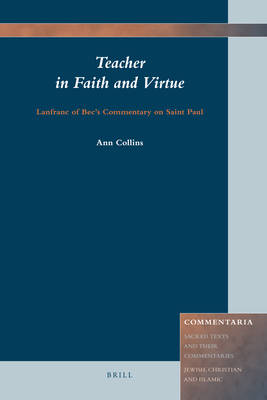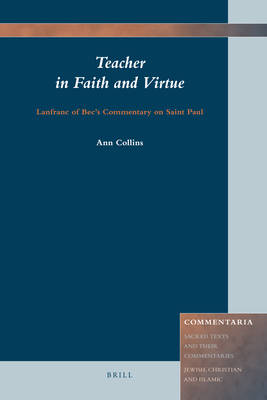
- Afhalen na 1 uur in een winkel met voorraad
- Gratis thuislevering in België vanaf € 30
- Ruim aanbod met 7 miljoen producten
- Afhalen na 1 uur in een winkel met voorraad
- Gratis thuislevering in België vanaf € 30
- Ruim aanbod met 7 miljoen producten
Zoeken
€ 225,95
+ 451 punten
Omschrijving
This book examines the manuscripts and text of Lanfranc's commentary on St. Paul to reconsider Lanfranc's influence upon educated culture of the eleventh century. Lanfranc's assimilation of patristic sources and his adaptation of rhetorical methods to biblical exegesis demonstrate his personal theological development as well as expectations he established for his students. Specifically, the commentary indicates a monastic curriculum that was both creative, by combining classical methods and theological inquiry, and conservative, by restricting these methods to the precepts of Ciceronian rhetoric and condemning other masters' methods. Lanfranc's commentary contributes to a broader discussion of the methods under consideration in the schools of northern France in the eleventh century and the possible competition among masters and their conflicting curricula.
Specificaties
Betrokkenen
- Auteur(s):
- Uitgeverij:
Inhoud
- Aantal bladzijden:
- 219
- Taal:
- Engels
- Reeks:
- Reeksnummer:
- nr. 1
Eigenschappen
- Productcode (EAN):
- 9789004163478
- Verschijningsdatum:
- 1/11/2007
- Uitvoering:
- Hardcover
- Formaat:
- Genaaid
- Afmetingen:
- 168 mm x 246 mm
- Gewicht:
- 566 g

Alleen bij Standaard Boekhandel
+ 451 punten op je klantenkaart van Standaard Boekhandel
Beoordelingen
We publiceren alleen reviews die voldoen aan de voorwaarden voor reviews. Bekijk onze voorwaarden voor reviews.








